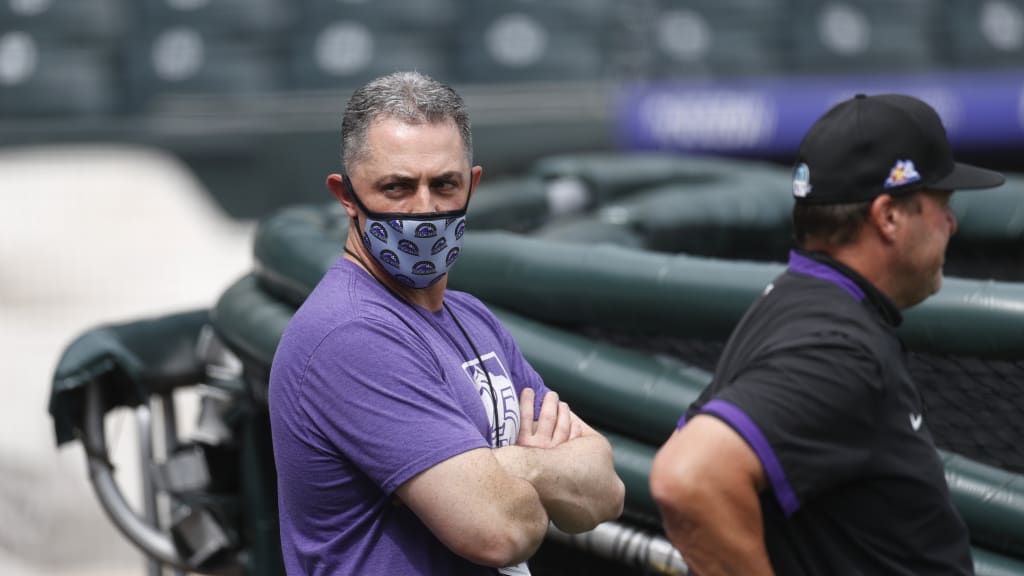
DENVER -- Nobody is saying the Rockies were as good as their 11-3 start suggested. Because of the team’s history, a lot of folks are willing to accept that their recent 2-12 downturn was who they are, but what’s important is they don’t believe that. Yet all can agree help is needed before Monday’s 2 p.m. MT Trade Deadline.
And one aspect of the team justifies the effort: starting pitching.
Over their first 30 games, the Rockies had four starts that gave them no chance, including three at Coors Field. So take the park factor out of it and this is a rotation capable of special things -- special enough to get into the postseason and see if one of its promising yet, at times, inconsistent arms can morph into a postseason stalwart. We're talking about Germán Márquez, Kyle Freeland, Jon Gray and Antonio Senzatela.
An important wrinkle to this year’s Trade Deadline is that teams can only trade players who are part of their 60-man player pool (assigned either to the big league team or the alternate site). Clubs are permitted to include players to be named later in trades, however. Additionally, scouts have not been allowed to attend games in person, so all assessments of prospects have been done based on provided video and data and past knowledge.
Buy/sell/hold?
Buy, but seek a good rental. Last offseason, any number of one-year free agents were available, but the Rockies had no payroll flexibility. With their traditional attention to making payroll and attendance linked, and, well, the current condition of no ticket income now, expecting their course to change this offseason would be a stretch. First baseman Daniel Murphy's contract comes off the books, but outfielder Ian Desmond, who didn’t play this year, is slated to return for $8 million, and Colorado has a number of arbitration-eligible players.
All this makes it tough to imagine the Rockies adding players with contracts beyond this season at the Deadline, and they are paying released relievers Jake McGee (who has since signed with the Dodgers) and Bryan Shaw (who was later designated for assignment by the Mariners) in the range of $6.8 million. But Desmond would have received slightly over $5 million as prorated salary for this season. Could some of that be justified to trade for a higher-earning player who can give a boost to finish out the season?
What they want
The Rockies’ offensive woes scream the need for an addition to the daily lineup -- something this team has rarely done at the Deadline, but exactly what general manger Jeff Bridich did in 2017, when he acquired catcher Jonathan Lucroy from the Rangers. A number of outfield additions make sense, or they could look at first base and turn Murphy into a designated hitter or a bat off the bench. And with Wade Davis trying to come back and Scott Oberg gone for the year, the bullpen calls for a seasoned late-game arm.
What they have to offer
This is where it gets tough. Selling clubs often look for players who they don’t have to protect on the 40-man roster the following winter, and the cancellation of the 2020 Minor League season reduces that chance. At the alternate training site, the Rockies have several attractive corner infield-outfield bats, including Tyler Nevin, Michael Toglia, Ryan Villade Colton Welker. There is a good argument for hanging onto all of them, but is this the year to mortgage one?
Chance of a deal
Let’s say 65%. The Rockies’ attention to the payroll has been well-documented, but with an expanded postseason and with the potential for their starting rotation turning hot, they owe it to themselves to pretend this is hockey -- a sport where a mediocre regular season can routinely turn into a special playoff. We've seen this with the 2012 Los Angeles Kings, going from the eighth seed to Stanley Cup champs, and the '17 Nashville Predators, who were the lowest seed to reach the Stanley Cup Finals before bowing to the Pittsburgh Penguins.

